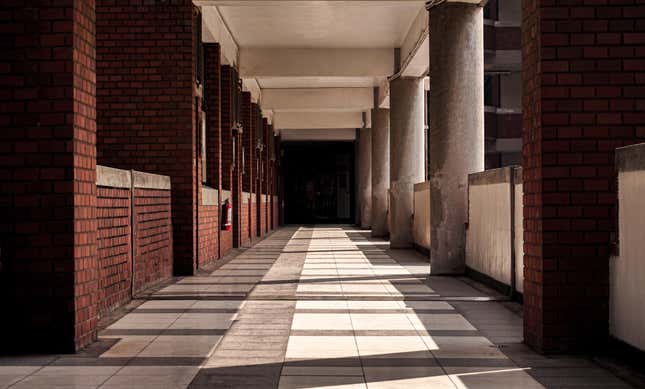Campus Sexual Assault Survivors Have Always Feared Defamation Lawsuits
The Johnny Depp/Amber Heard verdict tells survivors that if they dare to speak out, they’d better be prepared for the community to turn against them.
In Depth

On Wednesday, a jury concluded that Amber Heard had defamed her ex-husband Johnny Depp by writing an op ed in which, without naming names, Heard alluded to experiences with domestic violence. The decision came after a prolonged online smear campaign against her that many victims and survivors of intimate partner violence have said was retraumatizing for them, as it relied on tired misogyny to frame Heard—and really all women who have come forward about experiencing sexual and intimate partner violence—as scheming liars.
Certainly, Heard isn’t the only woman shouldering the consequences and psychological toll of the verdict—women and survivors with the least privilege arguably stand to lose the most from the spectacle of the trial, its verdict, and the precedent it sets. The verdict aims an especially targeted threat at campus sexual assault survivors, who are no strangers to defamation lawsuits and smear campaigns.
According to a survey by Know Your IX, a survivor justice legal advocacy group that supports students, 23% of student survivors said their perpetrator or perpetrator’s attorney threatened to sue them for defamation, 19% said they were warned by their school of the possibility of defamation suits, and 10% have faced “retaliatory complaints” filed by their assailants. Earlier this year, Jezebel reported on a rising tide of increasingly successful “anti-male bias” lawsuits in response to disciplinary action around campus sexual assaults. One database claims more than 700 Title IX-related lawsuits have been filed since 2013, though it’s not clear how many have been thrown out or privately settled.
Sage Carson, a co-author of Know Your IX’s extensive 2021 report on the consequences student survivors face for reporting, tells Jezebel the entire purpose of defamation suits and the threat of them is to silence victims—and it’s not just famous perpetrators or “those with political power” who have this tool in their arsenal. “With the rise of MeToo, famous men accused of sexual harm—Jeffrey Epstein, Andrew Cuomo, Bill Cosby, Harvey Weinstein—have all popularized a strategy to evade accountability by launching smear campaigns to undermine the victim’s credibility, then coming after those victims in court. This campaign of retaliation we see folks using like Depp did is intended to silence victims by making the cost of reporting too high to bear.”
-

-

-

-

-

-

-

-

-

-

-

-

-

-

-

-

-

-

-

-

-

-

-

-

-

-

-

-

-

-

-

-

-

-

-

-

-

-

-

-








































